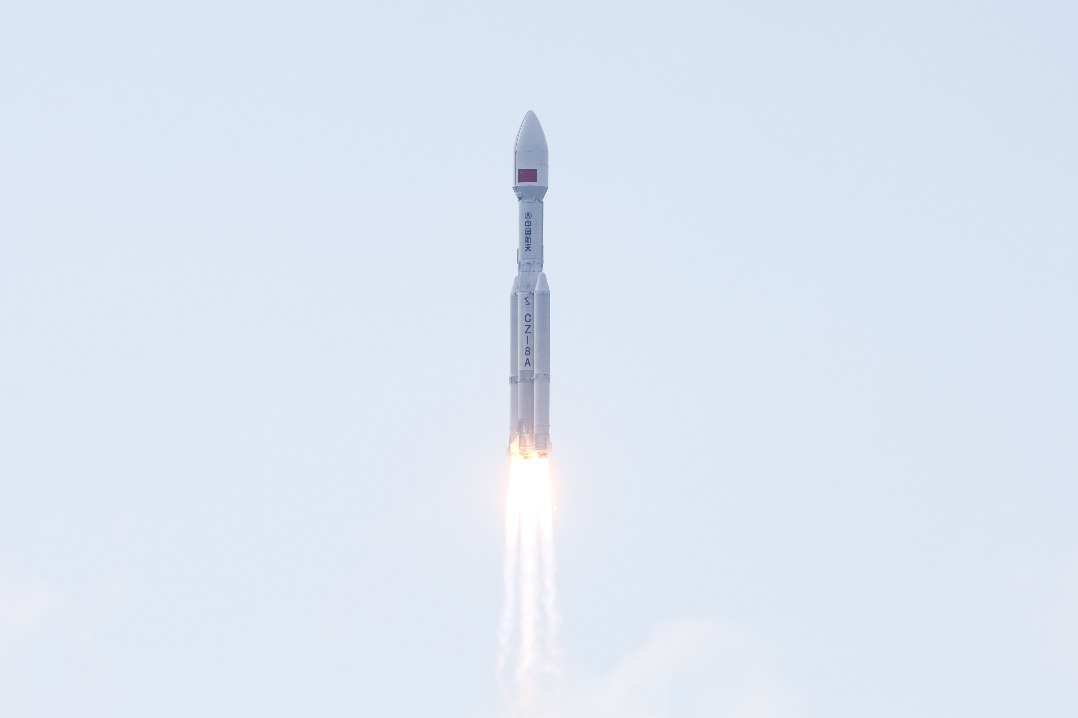Shenzhou XVIII mission returns samples for extraterrestrial habitation research


BEIJING -- The Shenzhou XVIII spacecraft has returned to Earth with 34.6 kilograms of space station experimental samples, encompassing microorganisms, alloy materials and nanomaterials that are difficult to prepare on Earth, the Science and Technology Daily reported on Monday.
The retrieved samples are poised to advance the development of space fiber lasers, facilitate the creation of extraterrestrial materials and explore the prospects of Earth life spreading through the cosmos.
The Shenzhou XVIII's return capsule, carrying three Chinese astronauts, returned to Earth in the early morning on Monday, after completing a six-month space station mission.
The scientific experimental samples brought back by the spacecraft included a total of 55 types, spanning 28 science projects across areas such as space life sciences, space materials science and microgravity combustion science.

The life science specimens comprise methane-generating archaea, radiation-resistant microbes and microorganisms that inhabit rocks. These are anticipated to lay the scientific groundwork for investigating the potential habitability of extraterrestrial environments and to assess the capacity of microorganisms to adapt to the challenges of outer space.
Part of the returned samples are high-temperature resistant alloys, fiber optics and optical coatings. These innovative materials hold the potential to revolutionize the manufacturing of next-generation aerospace turbine blades, space-adapted fiber lasers and precision medical repairs.
The spacecraft also returned nanoparticles derived from methane combustion, which are intended to facilitate the future synthesis of critical particulate materials for extraterrestrial environments.
- Shenzhen's biopharma firm signs deal with global leader in cell therapy
- Former head of Central South University under investigation
- Shanghai Ocean University honored for helping sustainable systems
- China announces certification program to regulate data transfer
- Intl agricultural trade fair opens in Tianjin
- China launches 18 communications satellites




































